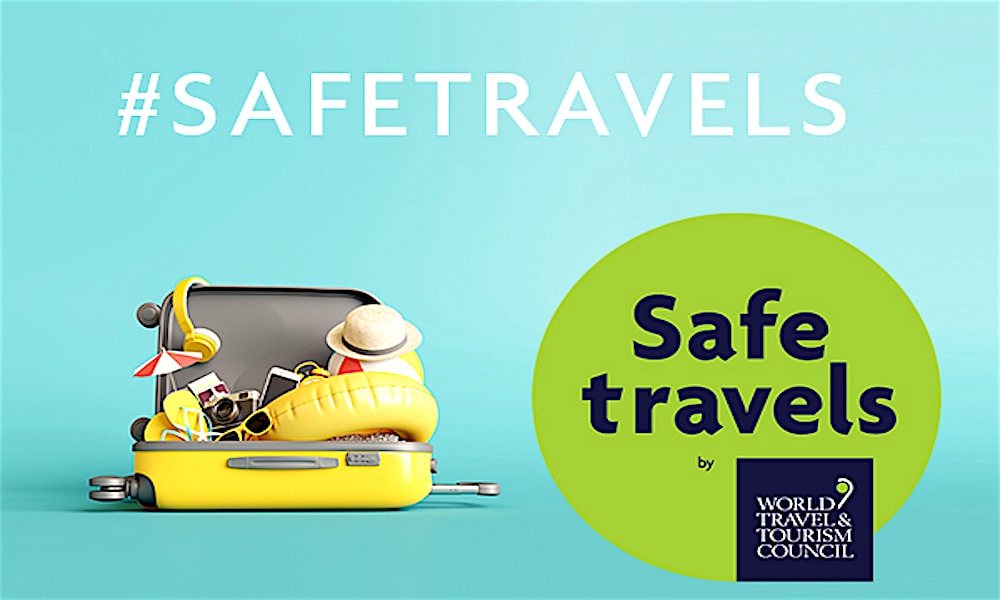
The World Travel & Tourism Council (WTTC) has called on all travellers to don protective face masks to show they ‘wear to care’ in the new normal of travelling. As countries transition from lockdowns to reopening their borders, the wearing of face masks helps signal the return of safer travels, while also providing personal protection for users as well as those around them.
The advice from WTTC in favour of mandatory mask wearing comes from evidence that countries that are recovering faster and avoid second Covid-19 spikes are those where the use of face masks have been widely enforced and encouraged.
Following medical guidance from the Harvard T.H. Chan School of Public Health, WTTC advises the wearing of masks on all forms of transport throughout the entire traveller journey, as well as when visiting any interior venue or those with restricted movement that results in close personal contact of two metres or less.
WTTC has asked governments around the globe to enforce the wearing of face masks, as well as enlisting the support of the private sector to remind customers of their obligations to protect their health and that of fellow travellers.
Travellers around the world can get involved with the WTTC campaign by sharing pictures of the themselves travelling with their masks and sharing the hashtag #wear2care.
Embracing the use of face masks will reduce the risk of transmission, protect the user and those around them, as well as reintroducing a sense of normality, as we learn to live with the virus until a vaccine is found.
The new recommendations follow in the wake of WTTC recently issuing its new guidelines for Safe & Seamless Travel, including testing and tracing to ensure people can enjoy safe travels in the ‘new normal’. Frequent handwashing and using hand sanitiser complement the use of face masks, which can significantly reduce the risk of Covid-19 transmission.
Gloria Guevara, WTTC President and Chief Executive, said: “The safety and hygiene of travellers and those who work in travel and tourism is of paramount importance, which is why we now strongly recommend masks being mandatory. ‘Wear to Care’ promotes the protection of face mask users and visibly shows they care about the welfare and safety of their fellow travellers, which will help save lives and encourage the return of Safe Travels.
“The wearing of masks should not be politicised. Wearing a mask needs to become part of everyday life to ensure everyone enjoys travelling in safety until a vaccine for Covid-19 is found. We implore the private sector and global governments to encourage their use so wearing a mask becomes the new normal.”
Ramon Sánchez, Principal Investigator and Research Associate at Harvard University, T.H. Chan School of Public Health, said: “Wearing face masks has been proven to provide the highest level of protection against transmission at 82%. Constant hand hygiene and surface cleaning, which kills more than 90% of viruses that are found on surfaces, also prevents the virus from reaching the face from the hands.
“The public should keep a two-metre distance whenever they can, however if that simply isn’t possible, people should increase the ventilation around them. Inside buildings this can be done by opening doors and windows, which decreases the viral concentration by more than 70%. Mechanical ventilation, such as air conditioning decreases it by 80%, while going outdoors proves more effective by decreasing the viral concentration between 90% and 95%.”
WTTC has led a series of initiatives designed to rebuild global consumer confidence and encourage the return of Safe Travels.
Safe Travels Protocols were developed for the global travel and tourism sector and focused on measures to drive business to car hire companies, airports, tour operators, attractions and short short-term rentals among many other travel sectors, to enable them to follow strict health and hygiene regimes when re-opening their businesses.
The welfare of travellers and the millions of people working across the travel and tourism sector is central to the protocols. In addition to being backed by the United Nations World Tourism Organisation, they were also widely embraced by thousands of businesses around the world.




